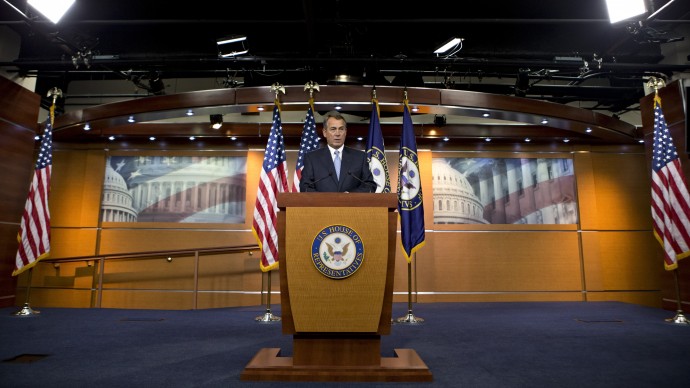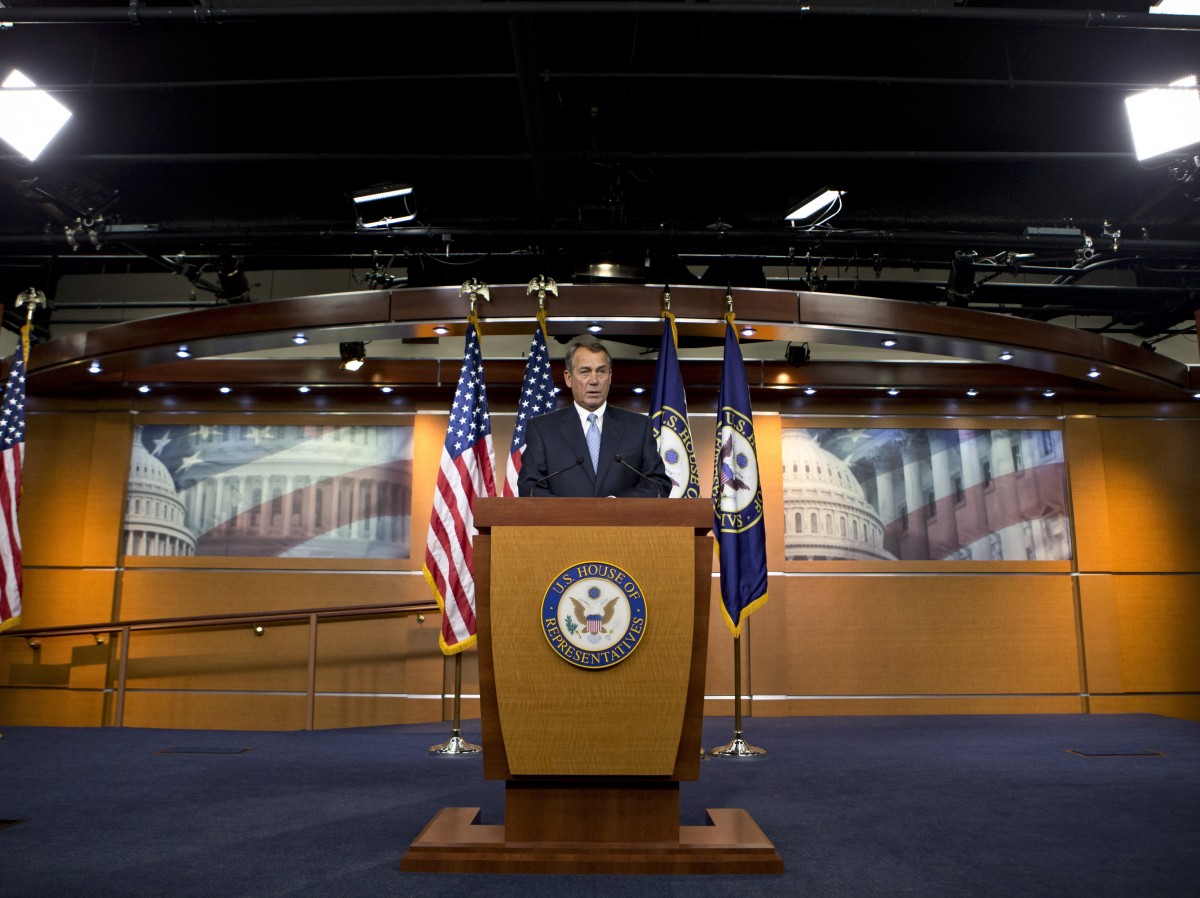
On Friday, former Rep. Thomas Foley (D-Wash.), the 57th speaker of the U.S. House of Representatives, died from complications related to stroke and pneumonia. He was 84 years old. Foley, who served as speaker for 1989 to 1994, feared that the increasing partisanship that was then taking hold in the House would eventually undo it.
Foley himself came into power when then-Rep. Newt Gingrich (R-Ga.) led a fight to oust Speaker Jim Wright (D-Texas) over alleged ethics violations. Wright’s own partisan saber-rattling was thought to be the impetus of the Republicans’ response — Republicans which at that point hadn’t been in power in the House in a generation.
Upon assuming power, Foley promised that the era of partisanship in the House was over. ”I’m proud to be a Democrat,” he said. ”But I don’t particularly like to bash Republicans. I think the best partisanship is to try to persuade the unpersuaded of your point of view, to attract voters to the party, to attract support to the party and its principles and policies and not just to have a donnybrook of trashing Republicans.” He is commonly held to be the most bipartisan of all of the modern speakers. Even Gingrich begrudgedly gave Foley respect and credit.
But this didn’t stop Gingrich from kicking Foley out of office. Foley holds the distinction of being the first serving speaker of the House since the end of the Civil War to lose re-election while serving as speaker. While Foley’s opposition to term limits for Washington state’s elected officials and support of the Assault Weapons Ban of 1994 were credited with his defeat (in which he failed to win support in the rural areas of his district), the fact that Gingrich and his “Contract with America” coalition lobbied against Foley toward a change in the House didn’t help.
Newt Gingrich’s speakership constituted a concentration of power usually not seen in Westminster-style legislatures. Instead of being the constitutionally-ordained leader of the House, Gingrich conducted both the legislative agenda and ownership of the legislation itself under his umbrella. Under his “Contract with America,” he dictated the tempo of legislation and the fervor of partisan attitudes in the House to the point that he saw himself as almost a Cromwellian direct challenge to the president — leading to a government shutdown, multiple congressional investigations into White House operations and only the second impeachment of a president in American history.
Since then, speakers have flirted with merging party politics with their congressional roles. Nancy Pelosi (D-Calif.), for example, used her posture to push for global warming legislation and to temper the party’s calls to end American military involvement in Iraq and Afghanistan. Dennis Hastert (R-Ill.) introduced the Medicare prescription bill and kept open the House roll call vote on the bill for hours — in violation of House rules — to get enough votes to get it passed. But no speaker has taken this concept as far as the current speaker, John Boehner (R-Ohio), has, and in this lies true danger.
The modern speaker
During the recent shutdown, Boehner held firm that any call to restore government funding would fail, as he was unable to gather enough Republican votes to support passage. This was despite repeated assertions from a large group of Republicans stating that if they were presented with a continuing resolution bill that would restore the government, they would vote for it. Multiple media outlets projected that there was enough votes not only to pass the CR, but to pass it comfortably. As seen on Tuesday, the CR passed with more than 60 extra votes.
It’s hard to ascertain what exactly was achieved in a standoff that created an estimated loss of $24 billion in economic activity, forced the back payment of government workers for work not done, stopped safety inspections, halted essential research, closed parks and frustrated the majority of Americans and America’s economic partners. Ultimately, the Republicans received a deferment of the Affordable Care Act’s subsidies for congressional and White House staffers (a violation of the 27th Amendment), a promise from the Democrats to follow the ACA’s means test as it is written in the original legislation, a call for budget negotiations (which the Democrats have been requesting for the last five months) and the opportunity to go through this all again in January.
“The House has fought with everything it has to convince the president of the United States to engage in bipartisan negotiations aimed at addressing our country’s debt and providing fairness for the American people under Obamacare,” Boehner said after he finally conceded to the Democrats. “That fight will continue. But blocking the bipartisan agreement reached today by the members of the Senate will not be a tactic for us.”
In reality, the shutdown was a reflection of political realities. The notion that the House would pass a bill to defund the ACA, marking the 42nd time the House attempted to alter, delay or stop the controversial bill, knowing that it would trigger a government shutdown and that the Republican mainstream — from former presidential candidate Mitt Romney to Sen. John McCain (Ariz.) — wholly rejected the idea, made Boehner’s backing of the bill to appease the Tea Party amount to political malpractice.
The Affordable Care Act didn’t just build more community health centers. It was a major bit of social engineering championed by the nation’s first black president. It reached into private lives with new mandates and arrived amid major economic stress in the country after the financial collapse in 2008. This helped to spur a largely white, populist anti-government movement inside the GOP, ground down by years of war and economic stress and vulnerable to a grass-roots takeover often aided by wealthy interests with their own anti-regulatory agenda.
Boehner rode this tiger back to power in the House in the 2010 elections and its flashes of idealism genuinely appealed to him from his own Gang of Seven days as a younger House member. But in this shutdown and debt crisis, it also pushed him to advance its utopian vision with radical means at odds with his constitutional role.
Failure in the concentration of power
In this speaker-as-majority-leader mindset, the checks and balances of the House are defeated. The way things are supposed to work is this: the majority leader meets with the speaker to set the legislative agenda. The speaker then sends the agenda to the committee chairs, who draft legislation in their respective committees. The legislation leaves committee, the majority leader and the whips draw support for the legislation and the legislation passes. What is happening now is the speaker puts on a one-man show, assuming responsibility and ownership of legislation, instead of just introducing it.
This creates a situation in which the speaker must appease multiple factions just to maintain power, which freezes him in place. Instead of allowing the process to play out democratically, pressure from minority groups — such as the Tea Party, which, lacking a majority, holds control anyway thanks to the persistent threat of “primarying” vulnerable mainstream Republicans out of office, something even Boehner cannot ignore — is creating a logistic backlog that has made the last two Congresses the least productive in the history of the nation.
It may be that ultimately, the way forward after the disaster of the shutdown is a step back. While it is speculative to say at this point, one might argue that if the House Appropriations Committee considered the Senate’s Continuing Resolution proposal instead of the majority leader or the speaker, the shutdown would have worked out differently. At the very least, Boehner would not have been the fall guy.
It may be time to walk away from the modern speakership. Reinforcing the role of speaker of the House may first require weakening it.


